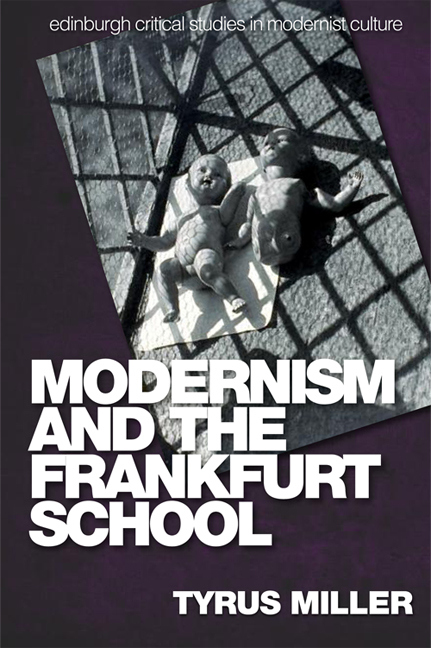3 - Theodor Adorno
Summary
INTRODUCTION: ADORNO AND MODERNISM
Theodor W. Adorno was the youngest, but ultimately most influential major member of the Frankfurt School's organizational inner circle. Formally trained in both philosophy and music, and briefly active artistically as a follower of Arnold Schonberg's atonal composition and student of Alban Berg in Vienna, Adorno would make important contributions in a wide range of interdisciplinary research. Over the course of four decades, he would write and publish in the interdisciplinary fields of social philosophy, social psychology, sociology of music, sociological study of mass media, education theory, and sociological aesthetics, as well as in more disciplinarily focused areas such as philosophy, literary criticism, musical analysis, and empirical sociology. Adorno's published collected writings encompass thousands of pages, and new editions of drafted essays and studies, lectures, interviews, and correspondence have been appearing regularly up to the present.
Adorno lived primarily in Frankfurt and Vienna before Hitler's accession to power. In exile during most of the Nazi period, Adorno studied and worked as a researcher in Oxford, in New York, and in Los Angeles, where he coauthored with Max Horkheimer one of his most important works, Dialectic of Enlightenment. In Los Angeles he also played a notable supporting role in modernist literature as Thomas Mann's source of expert musical information for the novel Doktor Faustus, which in its development of the artist- protagonist Adrian Leverkühn utilizes elements of Arnold Schönberg's compositional doctrine, as mediated and interpreted to Mann by Adorno. In tribute, Mann in turn gave Adorno a recognizable cameo appearance in the book as the elegant, ironic devil who offers the pact of tainted genius through sickness and madness to Mann's Leverkühn. In a broad allegory of modernism's aesthetic gambit in the age of imperialism, technological war, and spreading totalitarianism, Leverkühn will intentionally contract syphilis and renounce love, in return for twenty-four years of brilliant, inhumanly innovative artistic creativity.
After World War II, on the invitation of his close collaborator Max Horkheimer, Adorno returned to the Federal Republic of Germany and took up a university post. In 1958, he replaced Horkheimer as the director of the Institute for Social Research.
- Type
- Chapter
- Information
- Modernism and the Frankfurt School , pp. 77 - 113Publisher: Edinburgh University PressPrint publication year: 2014



